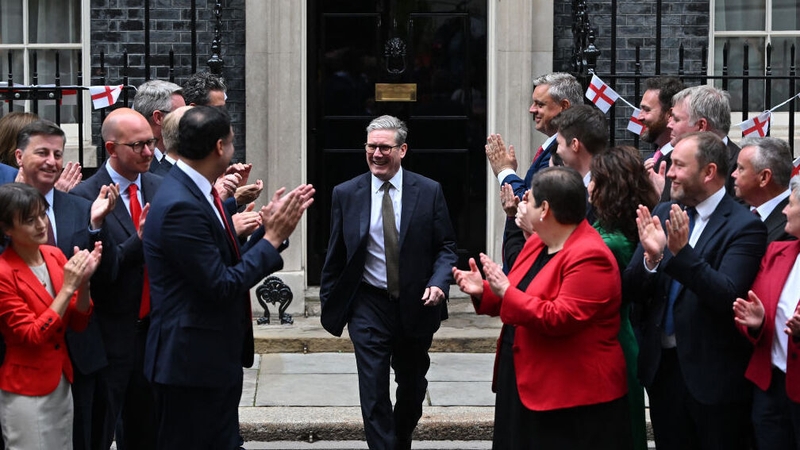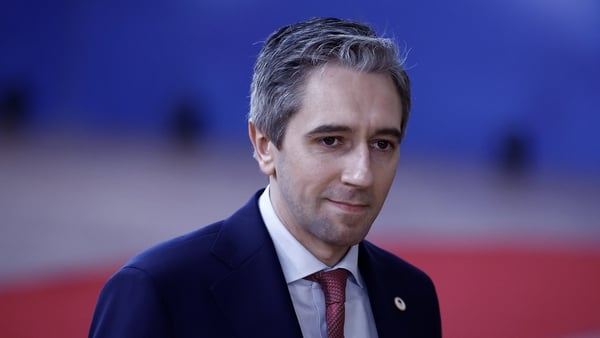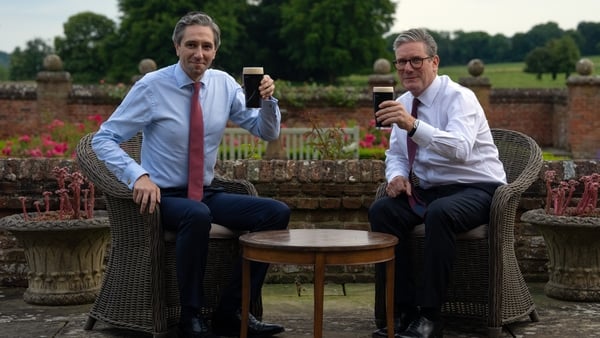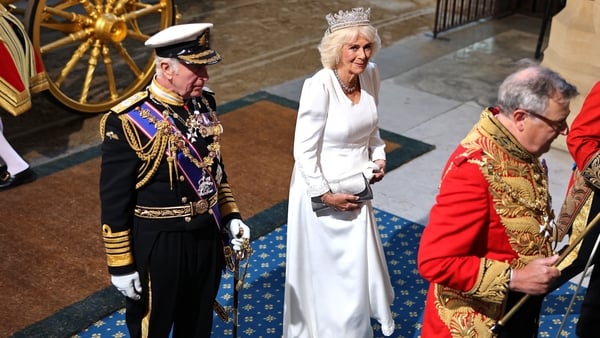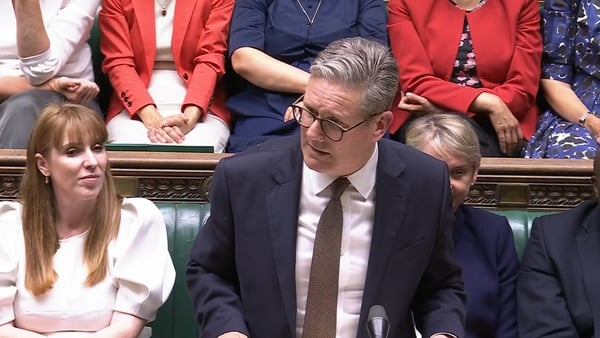Just five days into his premiership, British Prime Minister Keir Starmer was in the White House, meeting with US President Joe Biden.
It was seen as a diplomatic coup in London, an opportunity the new leader to make a splash on the world stage.
It coincided with the NATO summit of world leaders, which saw political pressure piled on Mr Biden over his ability to defeat Donald Trump and lead America for another four years.
All the while, Mr Starmer was largely able to look statesmanlike, batting away questions over Mr Biden's mental agility.
Scrutiny over the UK's spending on defence was not the main focus of the day.
Triumph for England in the Euro semi-finals also offered a boost to public moral.
"It's all because of the prime minister", Mr Biden joked, while the pair sat side by side in front of cameras in the Oval Office after England's win.
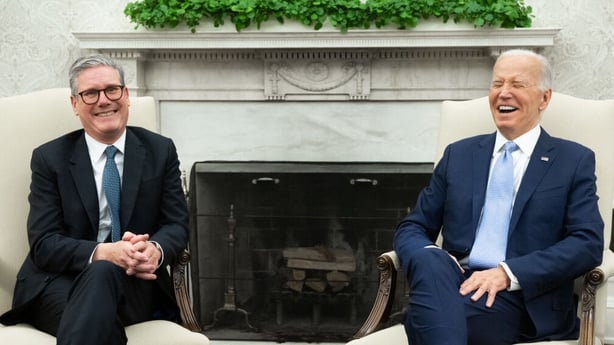
These events, along with pledges to reset the UK's relationships with Ireland and the European Union, which have so far not sparked any major controversy in Britain, have contributed to a sort of honeymoon phase for the new prime minister.
The fact that the Conservative Party has mostly been consumed with itself, as it prepares to replace Rishi Sunak, has also provided significant breathing room for the Labour government.
However, with looming problems on many fronts, this honeymoon cannot last forever.
Economic inheritance
On Monday, the Chancellor of the Exchequer Rachel Reeves gave a speech outlining her plans for economic growth.
However, she also warned that the new government would inherit the worst set of economic circumstances since World War II.
"What I have seen in the past 72 hours has only confirmed that," she told those gathered.
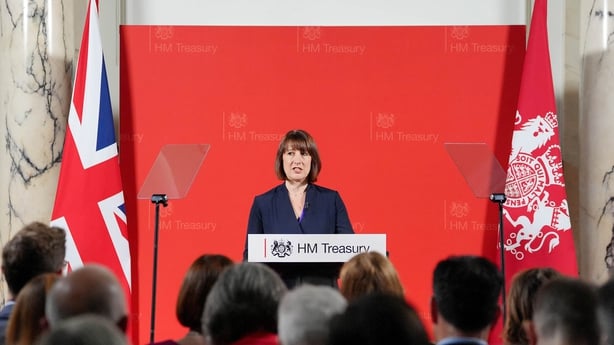
Ms Reeves has requested an assessment of the "economic inheritance" from the previous government.
She will be presenting the findings to parliament before the summer recess.
"Inheritance" is a word that has been cropping up a lot in recent days.
It was also used by the Chancellor of the Duchy of Lancaster Pat McFadden whose parents come from Donegal.
He is considered to be one of the most influential Labour Party figures, having led it to electoral success as the party's campaign co-ordinator in the general election.
Mr McFadden told a BBC podcast on Friday that the economic constraints and "inheritance" that the new government would have to grapple with would be worse than what he had anticipated.
It appears as though the government is laying the ground work for what will be unpopular decisions over the coming period. It is hoping to attach a large part of the blame to the Conservative Party.
Junior doctors
Shortly after he was appointed as the new Secretary of State for Health last week, Wes Streeting announced that talks would take place with junior doctors around their pay dispute.
Junior doctors are looking for a 35% pay increase.
Labour has been clear that there is not enough money to meet that demand. There have been several rounds of strikes since last year.
The mood music around a potential deal is more positive now that talks have resumed with the new government. However, junior doctors have warned that a deal is not there yet.
While it could to be one of the early successes of this Labour government, other public sector unions will be watching closely.
At the NATO summit this week, Mr Starmer was asked if he would agree to above inflation pay demands by other unions and the answer was "no".
It could likely be one of the first battles the new prime minister faces, with union leaders expressing concern at Mr Starmer's response.
Defence spending
At that same NATO Summit this week, Mr Starmer urged other members of the military alliance to boost their own defence spending to 2.5% of their GDP.
The problem for the prime minister is that he has given no clear timeline as to when his government will reach that target.
In contrast, the Conservative Party pledged to reach it by 2030.
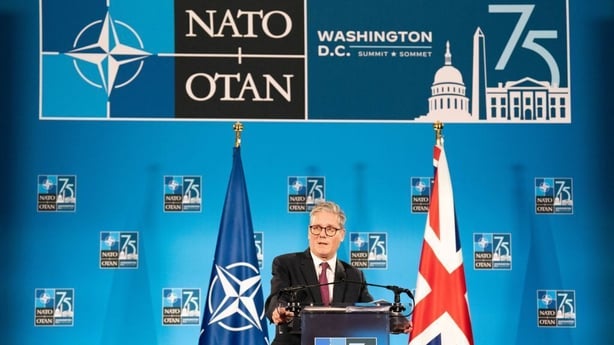
On Tuesday, the prime minister launched a strategic review, which will set out a roadmap to achieving that 2.5% spending target but it has no firm deadline, although the new Defence Secretary John Healey has said that he would like to see it completed within a year.
Undoubtedly, it is a stick which the Conservative Party will try to beat the government with, arguing that Mr Starmer is failing to take global security risks seriously.
Reset with European Union
The prime minister has not been shy about his plans to "reset" the relationship with the European Union.
Despite negative feelings amongst Brexit supporters around closer links with the EU, Mr Starmer's overtures have not sparked significant controversy yet.
Next Thursday will provide the new prime minister with an important opportunity to further progress that agenda, as European leaders arrive at Blenheim Palace in Oxfordshire to attend the European Political Community forum.
The closer links that the UK is seeking involve a security pact and also a new veterinary agreement to reduce trade barriers.
We need your consent to load this comcast-player contentWe use comcast-player to manage extra content that can set cookies on your device and collect data about your activity. Please review their details and accept them to load the content.Manage Preferences
Taoiseach Simon Harris told Sky News last Sunday that he believed that the European Union would be open to hearing UK proposals.
Mr Harris is due to meet with Mr Starmer for a separate bilateral next Wednesday evening at Chequers.
However, the intricacies of such agreements, which in the case of a veterinary deal could involve the UK having to align with certain EU rules, will likely spark political backlash.
Not only will Mr Starmer have a Conservative Party in opposition to contend with but also the Reform UK party, whos leader is the ardent Brexit backer Nigel Farage.
Channel crossings
Migration was due to be one of the main topics of discussion at the European Political Community forum next Thursday.
It remains a key issue for the EU and the UK.
On Friday, four people died after their boat capsized when attempting to cross the English channel.
This week, the new Home Secretary Yvette Cooper announced plans to establish a UK border security command that she hopes will reduce the number of small boat crossings in the English Channel.
However, on Friday, it was reported that one of the lead contenders for the position had pulled out.
The government has scrapped the Conservatives controversial Rwanda plan, which Mr Starmer described as "dead and buried before it even started".
Instead, he has pledged to "smash" the people smuggling gangs through the new border security command.
As of 10 July, 14,058 had cross the channel since the start of the year. Should those numbers continue to increase, Mr Starmer and his Government will come up against significant political pressure, over what is a hugely divisive issue.
